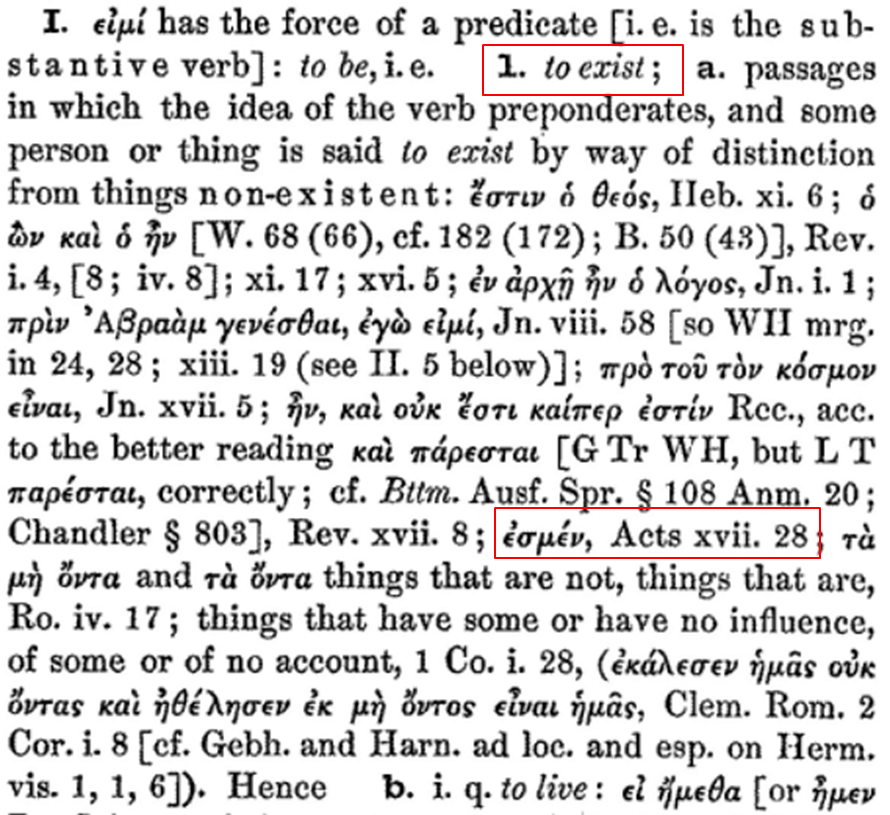It only took me an hour and a half but I was finally able to photograph Acts 17:28 from the oldest manuscript copy we have, dated approximately 350 AD, taken from the Codex Sinaiticus. See here: (pdf) Obviously not showing because it's not online.
So see it here, on the codex with four columns (second row to the left). SCROLL DOWN to see the actual manuscript; it's not the first thing you see. Count 17 spaces up -that's where the verse starts- until you get to 11 spaces up, where it ends. Sounds like I'm giving you the directions to a treasure chest: (pdf)
Or, find it on their website: www.codexsinaiticus.org. (Click on "see the manuscript, enter the verse, and use the microscope and other tools on the left.)
"Being" is the Greek "esmen" ("we are, are, be" -Strong's G2070) ἐσμέν
Compare this to H1961"hayah" -to be, to exist (God's name in Exodus 3:14) הָיָה
Compare with H1933 "hava" -to breathe הָוָה
I think these are all better translated as "breath." You cannot be/exist without breath. The Holy Spirit is, at its essence, "The (ha) Breath (yah)."
I don't see "being" in this codex. The codex translates this verse as: "For in him, we live and move and are, as also some of your own poets have said: For we also his offspring are" (see website above, go to right hand side).
Since it's not in the codex -unless it's in a different codex- it's unlikely that he used the word.
"Being" is a tricky word. Its root word is “eimi,” (“I am,” "am" -Strong's G1510):
It's tricky because "eimi" debatably denotes a reference to having The Holy Spirit. In Exodus 3:14, translated in different ways, depending on what the source is, but to make things easy: "I am who am." Christ used "eimi" or "ego eimi" frequently in the gospel of John.
If Paul did use "eimi," and even if he didn't, I think he's referencing The Holy Spirit. I think that's also hinted at in the verse following (Acts 17:32).
The passage you're quoting is clearly showing Paul talking about physical things. He's saying these people worship "an unknown God" in a "city" with "objects" and "shrines made by human hands" and that God "does not live in" these places, that "he is not far from each one of us." In Acts 17:29, he says: "we ought not to think that the Godhead is like unto gold or silver or stone, graven by art or man's device"(KJV).
In Acts 17:32, he says: "And when they heard of the resurrection of the dead, some mocked." They wouldn't have mocked and this wouldn't even be in this passage if Paul wasn't referring to The Holy Spirit. The resurrection of the dead can't happen without The Holy Spirit coming first.
Taken into context... God is invisible and these people are worshiping using physical, tangible, visible things -unlike Paul and his followers who worship a spiritual, invisible, intangible Holy Spirit.
